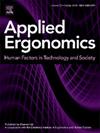The impact of AI explanations on clinicians’ trust and diagnostic accuracy in breast cancer
IF 3.4
2区 工程技术
Q2 ENGINEERING, INDUSTRIAL
引用次数: 0
Abstract
Advances in machine learning have created new opportunities to develop artificial intelligence (AI)-based clinical decision support systems using past clinical data and improve diagnosis decisions in life-threatening illnesses such breast cancer. Providing explanations for AI recommendations is a possible way to address trust and usability issues in black-box AI systems. This paper presents the results of an experiment to assess the impact of varying levels of AI explanations on clinicians’ trust and diagnosis accuracy in a breast cancer application and the impact of demographics on the findings. The study includes 28 clinicians with varying medical roles related to breast cancer diagnosis. The results show that increasing levels of explanations do not always improve trust or diagnosis performance. The results also show that while some of the self-reported measures such as AI familiarity depend on gender, age and experience, the behavioral assessments of trust and performance are independent of those variables.
人工智能解释对乳腺癌临床医生信任度及诊断准确性的影响
机器学习的进步为利用过去的临床数据开发基于人工智能(AI)的临床决策支持系统创造了新的机会,并改善了乳腺癌等危及生命的疾病的诊断决策。为AI建议提供解释是解决黑盒AI系统中信任和可用性问题的一种可能方法。本文介绍了一项实验的结果,该实验评估了不同程度的人工智能解释对乳腺癌应用中临床医生的信任和诊断准确性的影响,以及人口统计学对结果的影响。这项研究包括28名临床医生,他们在乳腺癌诊断方面扮演着不同的医学角色。结果表明,增加解释水平并不总是提高信任或诊断性能。结果还表明,虽然一些自我报告的措施,如人工智能熟悉程度取决于性别、年龄和经验,但信任和表现的行为评估与这些变量无关。
本文章由计算机程序翻译,如有差异,请以英文原文为准。
求助全文
约1分钟内获得全文
求助全文
来源期刊

Applied Ergonomics
工程技术-工程:工业
CiteScore
7.50
自引率
9.40%
发文量
248
审稿时长
53 days
期刊介绍:
Applied Ergonomics is aimed at ergonomists and all those interested in applying ergonomics/human factors in the design, planning and management of technical and social systems at work or leisure. Readership is truly international with subscribers in over 50 countries. Professionals for whom Applied Ergonomics is of interest include: ergonomists, designers, industrial engineers, health and safety specialists, systems engineers, design engineers, organizational psychologists, occupational health specialists and human-computer interaction specialists.
 求助内容:
求助内容: 应助结果提醒方式:
应助结果提醒方式:


